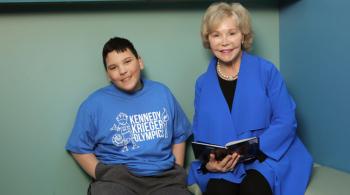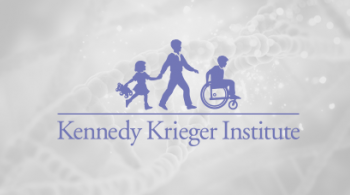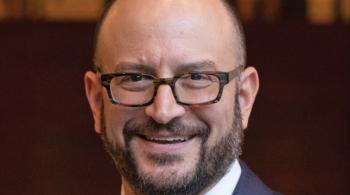By Roshni Rao, PsyD
As a first-year postdoctoral pediatric neuropsychology fellow at Kennedy Krieger Institute, I was thrilled to have the opportunity to train through the Maryland Center for Developmental Disabilities, one of the nationally-renowned University Centers for Excellence in Developmental Disabilities, and its Maternal and Child Health Leadership Education in Neurodevelopmental and Other Related Disabilities (LEND) program, to take my clinical work to the next level.
Understanding the systemic nature of healthcare and education is a key component of working with families and children with developmental disabilities and conditions across the spectrum. During my training, I had the opportunity to work with Project HEAL (Health, Education, Advocacy and Law) and MCDD during the state legislative session.
Following the issues and policies that directly affect the children and families we work with on a daily basis is a priority for MCDD. Advocacy efforts are widespread and reach both state and national levels. This legislative session, Project HEAL and MCDD wrote and signed onto a total of 15 pieces of testimony with the Maryland Education Coalition and the Coalition to Reform School Discipline in Maryland in support of a number of proposed bills (and in opposition to several others) directly affecting individuals with disabilities and their families.
Project HEAL’s and MCDD’s actions included opposition to House Bill 1507, which would require a school employee to report truancy violations. Project HEAL and MCDD posited that such a law would present a conflict of interest between schools and families. MCDD submitted written testimony in support of House Bill 1533,which requires brain injury screening for children with disabilities during an initial evaluation for an individualized education program. The bill passed and will take effect on July 1, 2018.
Looking ahead, Project HEAL is actively supporting the development of guidelines for a trauma-informed approach to healthcare by the Maryland State Department of Education, and it will serve on a committee to support legislation instituting these guidelines during the next session.
My experience working with Project HEAL and MCDD culminated in learning about education and healthcare policy on a national level at the 2018 Disability Policy Seminar in Washington, D.C. I had the opportunity to network with advocates and professionals from across Maryland and around the country, and to discuss and learn with them about current hot topics and issues affecting individuals with disabilities in our nation.
Seminar topics included employment policies, reviewing new education policy with regard to private school vouchers and students with disabilities, updates on Medicaid and Social Security programs, understanding what to expect in healthcare policy, a federal funding update, and developments in paid family and medical leave and family support programs. Notable speakers included U.S. Senator Maggie Hassan of New Hampshire and Catherine Lhamon, chair of the U.S. Commission on Civil Rights. The event concluded with meetings on Capitol Hill, where attendees met with their respective elected officials to discuss real-world issues.









